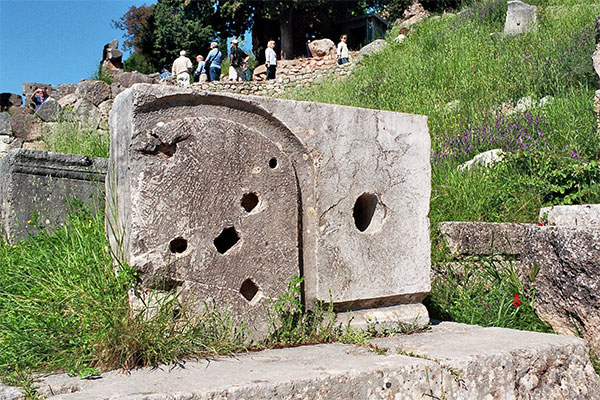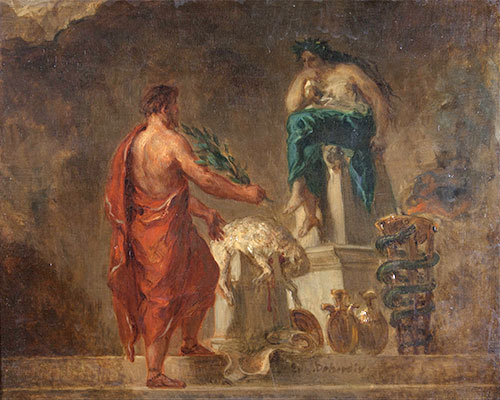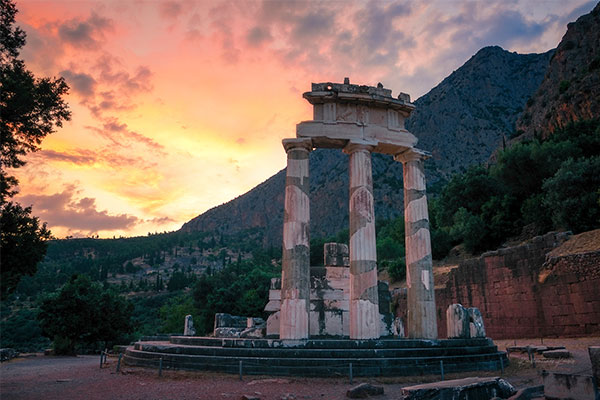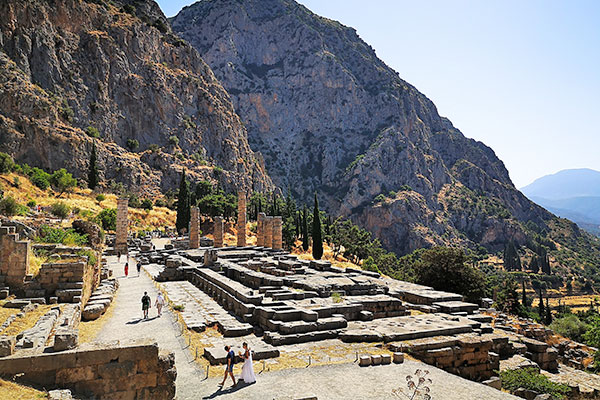Paradoxically, in male-dominated ancient Greece, the most influential oracle was a woman, known as Pythia of Delphi. All Pythias over the approximately 1000 years of oracling were Delphian women from respected families; once chosen, they would serve for life.
People would consult the oracle on personal questions of health, marriage, or prospects as well as on political issues relating to disputes between communities or the development of overseas colonies.

"Stone of Pythia" in the archaeological site in Delphi
Photo credit: Rabe
Photo credit: Rabe
For these consultations, the Pythia would be seated on a tripod chair, likely behind a curtain, in private area of the temple. She would fall into a trance (some say due to inhaling light hydrocarbon gases that escaped from a fissure in the ground) and speak the words of Apollo.

Lycurgus Consulting the Pythia by Eugène Delacroix
Apollo’s responses via Pythia were famously ambiguous. When Croesus, the king of Lydia, asked the oracle if he should attack Persia, he received the response: “If you cross the river, a great empire will be destroyed.” He viewed this as a good omen and went ahead with the invasion. Unfortunately, the great empire that was destroyed was his own.
The oracle was viewed as infallible, and her reputation grew as her fame spread beyond Greece and supplicants spent vast sums of money to access her wisdom. These riches built a powerful city-state that prospered for 1000 years.

Tholos of Delphi
Photo credit: Konstantinos Kousis

Ruins of the Temple of Apollo in Delphi
Photo credit: Ondřej Žváček
Photo credit: Ondřej Žváček
Looking for answers to your questions? We’ll be in Delphi on a most propitious April 26, 2022 on our Classical Greece trip with study leader Peter Prontzos. Limited space is still available. Email Donna to join the tour.



